#jacques coetzee
Text

“We have grown in secret.”
— Jacques Coetzee, ‘House of Loveliness’.
#me#mine#personal#my photo#my image#my picture#selfie#myself#self portrait#words#poetry#prose#quote#literature#original content#original photography#poem#text#aesthetic#jacques coetzee
248 notes
·
View notes
Text
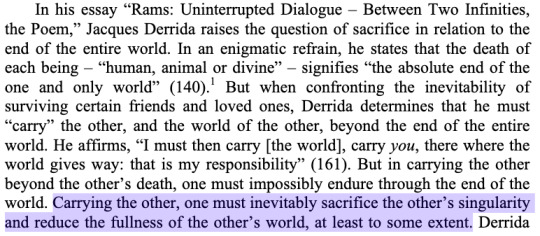

rother, "say the ram survived: altering the binding of isaac in jacques derrida’s “rams” and j.m. coetzee’s disgrace"
#grieving as inherently objectifying and open to appropriation#<- dc mutuals you know what i'm thinkin about <3#hauntologies#self-curated
12 notes
·
View notes
Text
Birthdays 2.9
Beer Birthdays
David C. Kuntz (1877)
Joe Allen (1888)
Brendan Behan; Irish writer (1923)
Five Favorite Birthdays
Frank Frazetta; artist (1928)
Brian Greene; physicist (1963)
Thomas Paine; writer, patriot (1737)
Vince Papale; Philadelphia Eagles WR (1946)
Alberto Vargas; pin-up artist (1896)
Famous Birthdays
George Ade; journalist, humorist (1866)
Alban Berg; composer (1885)
Bill Bergey; Philadelphia Eagles LB (1945)
J.M. Coetzee; writer (1940)
Ronald Colman; actor (1891)
Mia Farrow; actor (1945)
Kathryn Grayson; actor (1922)
William Henry Harrison; 9th U.S. President (1773)
Burkhard Heim; physicist (1925)
Holly Johnson; pop singer (1960)
Bill Justice; animator (1914)
Carole King; songwriter, singer (1942)
Gypsy Rose Lee; entertainer, actor (1914)
Amy Lowell; poet (1874)
Barry Mann; songwriter (1939)
Carmen Miranda; actor (1909)
Jacques Monod; biochemist (1910)
Roger Mudd; television journalist (1928)
Joe Pesci; actor (1943)
Dean Rusk; U.S. Secretary of State (1909)
James Stephens; Irish writer (1882)
Travis Tritt; country singer (1963)
Ernest Tubb; country singer (1914)
Amber Valletta; model (1973)
Bill Veeck; baseball team owner, promoter (1914)
Alice Walker; writer (1944)
Julie Warner; actor (1965)
Zhang Zyi; actor (1979)
0 notes
Text
Impressive polled bull sold for R200 000
26 September 2023
An excellent Simbra bull was sold for the highest price of R200 000 at Richter Simbras’ 18th auction. Martin Coetzee from Hoopstad is the new owner of the impressive polled bull bred by Chris Richter on the Leeukop farm outside Bloemfontein.
All 23 bulls were sold on SwiftVee’s online auction platform at an average price of R90 000.
Jacques Taylor of Simmolop Farm, Piet…
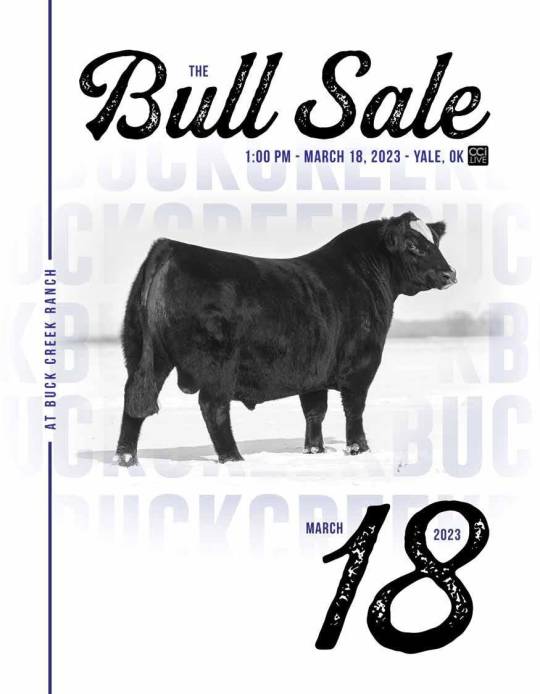
View On WordPress
0 notes
Text
Springboks set to spring Cheslin Kolbe shock for tour opener in opposition to Eire
The Springboks are set to make a shock choice for Saturday’s tour-opening Take a look at in opposition to Eire on the Aviva Stadium.
Cheslin Kolbe is about to make his Springbok return, however at fullback because the Boks search for their first win in Dublin since 2012.
The Boks’ two earlier defeats within the Irish republic’s capital have been heavy, however the sides have not met since 2017.
In Dublin
The Springboks are set to make a shock choice for Saturday’s Take a look at in opposition to Eire on the Aviva Stadium, with Cheslin Kolbe set to begin at fullback.
Springbok coach Jacques Nienaber shall be saying the match-day 23 for SA’s twenty seventh conflict in opposition to Eire on Tuesday.
The Take a look at shall be Kolbe’s first since he suffered a facial damage within the third Take a look at in opposition to Wales in Cape City in late July.
WATCH | ‘I am actually proud to be South African’ – Rassie: The Official Movie trailer
Additionally it is his first in opposition to Eire because the Boks have not performed the Emerald Greens for the reason that 38-3 defeat in Dublin in November 2017 that signalled the start of the top for then coach Allister Coetzee.
The fullback place is not one the Boks have experimented with as in comparison with flyhalf, with Willie le Roux and Damian Willemse rotating there for the higher a part of the season.
Warrick Gelant is the opposite fullback who has been used, with the previous Stormers utility again beginning at 15 within the second Take a look at in opposition to Wales.
The Take a look at may even be Nienaber’s first in opposition to Eire because the Boks get to a important stage of their World Cup preparations.
The Irish, together with Scotland, are additionally in South Africa’s World Cup group, with the Springboks dealing with Eire on the Stade de France in St Denis on 23 September.
That Paris conflict, one which’ll be the primary between the groups within the World Cup, heightens the importance of Saturday’s conflict because the Boks must take away a rising Dublin bogey.
Since Eire’s 17-12 win on the previous Lansdowne Street, they’ve solely dropped two different Assessments in opposition to the Boks – in 2010 (23-21) and 2012 (16-12).
The truth is, the Irish have received three of their final 5 Assessments in opposition to the Springboks, together with their well-known 26-20 win at Newlands on 11 June 2016 regardless of CJ Stander being red-carded for an aerial problem on Pat Lambie.
READ | Doubts over Sbu Nkosi’s health as Springboks jet off to Europe: ‘The Boks will make the decision’
The Boks’ two most up-to-date defeats in opposition to Eire have additionally tended to be abnormally heavy in Dublin, with the 38-3 document defeat in 2017 preceded by a 29-14 loss below Heyneke Meyer three years earlier.
The match-day 23 that ran out in opposition to Argentina on 24 September at Kings Park had 9 survivors from the 2017 workforce that misplaced to Eire.
Eben Etzebeth captained that 2017 facet and is one in every of solely 4 gamers, together with Willie le Roux, whereas Trevor Nyakane and Cobus Reinach had been on the bench for that recreation.
Bulls gamers Sbu Nkosi and Marco van Staden had been notable absentees from the Bok group that assembled in Dublin on Monday.
Kick-off for Saturday’s Take a look at is at 19:30 (SA time).
Khanyiso Tshwaku is in Dublin following the Springboks for News24 Sport for the year-end tour.
Originally published at Irvine News HQ
0 notes
Text
“We need fewer words now to say the same things: we have grown fluent with each other; we have grown in secret.”
— Jacques Coetzee, “House of Loveliness,” The Love Sheet by Barbara Fairhead and Jacques Coetzee (Hands-On Books, 2017)
463 notes
·
View notes
Text
Class 1: The social aesthetics of confession.
Required reading
Confessions by St Augustine (extract): Found here: (Book 4 - http://www.sacred-texts.com/chr/augconf/aug04.htm)
Confessions by Jean-Jacques Rousseau (extract)
Reality Hunger by David Shields (extract)
Recommended reading
Shannon Keating, “Am I Writing About My Life, Or Selling Myself Out?” https://www.buzzfeednews.com/article/shannonkeating/personal-writing-social-media-influencers-caroline-calloway
Sarah Ahmed, The Cultural Politics of Emotion – introduction’: available in PDF on Blackboard and online via Google Books: https://books.google.co.uk/books?id=QT8YAgAAQBAJ&pg=PA1&source=gbs_toc_r&cad=2#v=onepage&q&f=false
Marshall Berman, ‘Goethe’s Faust: The Tragedy of Development’ and ‘First Metamorphosis: The Dreamer’ from All that is Solid Melts into Air (on Blackboard)
‘But Enough About Me’ : what does the popularity of memoir tell us about ourselves?’ by Daniel Mendelsohn, New Yorker https://www.newyorker.com/magazine/2010/01/25/but-enough-about-me-2
Class 2: The stylised self in the world. Aesthetics of the insertion of the self in the story. Style and world view
Required reading
The White Album by Joan Didion (PDF provided)
Extract from The Birth of New Journalism by Tom Wolfe (PDF provided).
Recommended reading
'Gonzos for the 21st Century', http://www.nytimes.com/2005/03/20/books/review/the-new-new-journalism-gonzos-for-the-21st-century.html
Tom Wolfe, The Birth of New Journalism: An EyeWitness Report: http://nymag.com/news/media/47353/index6.html
Martin Amis on Joan Didion’s style: https://www.lrb.co.uk/v02/n02/martin-amis/joan-didions-style
Class 3: The writer’s subjectivity and physical space. Melding Interior/Exterior worlds.
Required reading
A Field Guide to Getting Lost by Rebecca Solnit.
Recommended reading
Anne Carson – Plainwater (extract provided)
Anne Carson – The Autobiography of Red
Fernando Pessoa – The Book of Disquiet (extract provided)
Ian Sinclair – Lights Out For the Territory (extract – chapter 8 Word doc provided)
Italo Calvino – Invisible Cities
Olivia Laing – The Lonely City – extract on blackboard
Review of Lights Out for the Territory: http://www.nytimes.com/books/99/08/29/reviews/990829.29hoffmat.html
Class 4: Writing Nature/Nature of Writing.
Required reading
'In History' by Jamaica Kincaid - PDF supplied
'Findings' by Kathleen Jamie - extract provided
'Landmarks' by Robert Macfarlane - extract provided
'A Claxton Diary' by Mark Cocker - extracts provided
Recommended reading
'The Kusi' by Jean McNeil
'Soil Turned to Song and Dance' - the TLS on Mark Cocker's nature writing: https://www.the-tls.co.uk/articles/mark-cocker-naturalism/?utm_medium=Social&utm_source=Twitter#Echobox=1574952085
'The Thoreau of the Suburbs' - feature article on Annie Dillard
'The New Nature Writing' by Jos Smith - extract provided
'The Anthropocene Lyric: an affective geography of poetry, person, place' by Tom Bristow (book)
Class 5: The self, anxiety and history – the non-novels of Sebald.
Required reading
The Emigrants by WG Sebald
Recommended reading
Reviews/literary criticism of Sebald:
André Aciman: https://www.nybooks.com/articles/1998/12/03/out-of-novemberland/
Cynthia Ozick – The Posthumous Sublime (on The Emigrants) on Blackboard
André Aciman: https://www.newyorker.com/books/page-turner/w-g-sebald-and-the-emigrants
Jonathan Coe: https://www.lrb.co.uk/v19/n06/jonathan-coe/tact
http://www.nytimes.com/books/97/03/30/reviews/970330.30wolfft.html
http://www.theliteraryreview.org/book-review/a-review-of-the-emigrants-by-w-g-sebald/
Class 6: Politics, alienation and self-displacement in South African and South American writing
Required reading
Summertime by JM Coetzee
Resistance (extract provided) by Julián Fuks
Recommended reading
Roland Barthes – The Death of the Author (on Blackboard)
Donald Powers, ‘Beyond the Death of the Author: Summertime and J. M. Coetzee’s Afterlives’, Life Writing, 2016. (on Blackboard)
Review: JM Coetzee, a Disembodied Man - https://www.nytimes.com/2009/12/27/books/review/Dee-t.html?pagewanted=all
Damon Galgut’s In a Strange Room - Galgut is a South African writer of the next generation. I've given an extract of this book, which is made up of three long novellas, here. 'The Lover' is the middle section in Galgut's trio of novellas.
Class 7: Walking and writing the city in fiction and non-fiction.
Required reading
Teju Cole – Open City
Recommended reading
Walter Benjamin – Berlin Chronicle (extract), One Way Street (extract) and Naples.
Joanna Walsh - Hotel (PDF provided)
Lauren Elkin – Flâneuse
Review of Open City: https://www.theguardian.com/books/2011/aug/17/open-city-teju-cole-review
James Wood on Teju Cole: https://www.newyorker.com/magazine/2011/02/28/the-arrival-of-enigmas
Class 8: Irony - Unreliable and self-critique as narrative drama.
Required reading
10:04 by Ben Lerner.
Recommended reading
Ben Lerner: Leaving the Atocha Station
Review of Leaving the Atocha Station https://www.lrb.co.uk/v34/n16/sheila-heti/i-hadnt-even-seen-the-alhambra
Jenny Offil - Dept of Speculation
Sheila Heti - How Should a Person Be?
Zadie Smith – Two Paths for the Novel (from Changing My Mind) on Blackboard
Zinzi Clemmons - What We Lose
Colebrook, Clare. Irony. New Critical Idiom. Routledge, 2004
Alejandro Zambra – Multiple Choice (extract on Blackboard)
Class 9: Contemporary autofiction - two texts.
Required reading
Rachel Cusk – Outline
Amit Chaudhuri - Friend of My Youth
Recommended reading
Rachel Cusk – Transit (extract on Blackboard)
Rachel Cusk, Kudos
Marcel Proust - A la recherche de temps perdu
VS Naipaul - The Enigma of Arrival
Geoff Dyer – Out of Sheer Rage
‘Rachel Cusk Gut-Renovates the Novel’ – profile in The New Yorker: https://www.newyorker.com/magazine/2017/08/07/rachel-cusk-gut-renovates-the-novel
Class 10. Shame and the self in auto-fiction. Domesticity. The Japanese I-novel.
Required reading
Karl Ove Knaussgard - My Struggle (in whole if you can buy the book, or in extract) provided here. My Struggle: book two, a man in love, introduced by James Wood: https://www.newyorker.com/books/page-turner/the-birthday-party
Recommended reading
Extract from Yuko Tsushima's Territory of Light (to be uploaded soon).
Rowan Hisayo Buchanan, ‘The Careful Craft of Writing Female Subjectivity’ https://www.theatlantic.com/entertainment/archive/2019/03/territory-light-yuko-tsushimas-vital-i-novel/585832/
Amit Chaudhuri ‘I am Ramu’: https://nplusonemag.com/online-only/online-only/i-am-ramu/
Review of Final volume of Knausgaard: https://www.theguardian.com/books/2018/aug/29/the-end-karl-ove-knausgaard
'How Writing My Struggle Undid Knausgaard': https://www.theatlantic.com/magazine/archive/2018/11/knausgaard-devours-himself/570847/
'Each Cornflake' - Review of Knausgaard by Ben Lerner in the LRB: https://www.lrb.co.uk/v36/n10/ben-lerner/each-cornflake
Class 11: The aesthetics and politics of the sexual self
Required reading
The Argonauts by Maggie Nelson
Recommended reading
Chris Kraus – I love Dick (extract on Blackboard)
Emilie Pine - Notes to Self
Catherine Millet – The Sexual Life of Catherine M. (extract on Blackboard)
Hélène Cixous – ‘The Laugh of the Medusa’ http://lavachequilit.typepad.com/files/cixous-read.pdf
‘Virgins or Whores – Feminist Critiques of Sexuality’, in Veronique Mottier, A Short Introduction to Sexuality (on Blackboard)
Henry Miller – The Tropic of Cancer
Sarah Ahmed – ‘The Performativity of Disgust’ from The Cultural Politics of Emotion (PDF here)
Chris Kraus ‘The New Universal’ https://sydneyreviewofbooks.com/new-universal/
Vivian Gornick http://bostonreview.net/books-ideas/vivian-gornick-good-feminist-solnit-rhode-cobble-gordon-henry
Kathy Acker – Blood and Guts in High School
Class 12: Using 'real' people in fiction.
Required reading
Megan Bradbury – Everyone is Watching
Zachary Lazar – I Pity the Poor Immigrant
Recommended reading
Zachary Lazar – Sway
James Wood in The New Yorker on Lazar – The Punished Land: https://www.newyorker.com/magazine/2014/06/23/the-punished-land
Miranda France in the Guardian on Everyone is Watching: https://www.theguardian.com/books/2016/jun/22/everyone-is-watching-megan-bradbury-review-novel
5 notes
·
View notes
Text
soft rain; and the touch of our fingertips’ shy coupling
What I remember of the day:
soft rain;
and the touch of our fingertips’ shy coupling…
and the sweet intimacy of our pilgrimage
over broken ground
and the way you listened
with your body leaning into my voice
and hearing
so deeply
far deeper than words
the tender heart-beat of unspoken things.
— Barbara Grenfell Fairhead, “Soft Rain,” The Love Sheet: Barbara Fairhead, Jacques Coetzee. (Hands-On Books, 2017)
7 notes
·
View notes
Text
Jacques Nienaber addresses the protests for the selection of Evan Roos
Jacques Nienaber addresses the protests for the selection of Evan Roos
9:21 a.m., April 10, 2022
Springboks head coach Jacques Nienaber addressed how his management team approached the process of selecting players for their national line-up camps following an outcry over the omission of several players.
There was considerable criticism in some quarters after Nienaber snubbed storms No.8 Evan Roos Y Bulls veteran Marcell Coetzee for the first South African line-up…

View On WordPress
0 notes
Text
Leinster assemble international laden squad for visit of Bulls

9:46am, 24 September 2021 Leinster have named a strong side for the visit of the Bulls to a 75 per cent capacity Aviva Stadium in Dublin tomorrow for their inaugural United Rugby Championship (URC) game.ADVERTISEMENTJake White’s men can expect a baptism of fire in the Irish capital. The last time the Bulls played European opposition saw the Pretorians humbled by Treviso in the final of the Rainbow Cup. The Currie Cup champions went into that game as favorites but left Italy on the end of a 35 – 8 thrashing, albeit with a somewhat depleted squad.Leinster head coach Leo Cullen has included seasoned Ireland internationals Johnny Sexton, Garry Ringrose, Johnny Sexton, Luke McGrath, James Ryan, Rhys Ruddock and Van Der Flier in the staring fifteen.


There will also be a return for Andrew Porter, who missed out on the British & Irish Lions tour due to a foot injury. A tighthead of late, Porter will start at loosehead, the first time he has done so since 2016.There will be a debut at tighthead for Samoan international Michael Ala’alatoa, while Leinster will have plenty of experience and talent on the bench with 231 times capped Cian Healy, Ryan Baird, Ross Byrne and Jamison Gibson-Park to call upon.Meanwhile, Springbok veteran Bismarck du Plessis will make his debut for the Vodacom Bulls after joining the side earlier this month.Leinster: Hugo Keenan, Rory O’Loughlin, Garry Ringrose, Ciarán Frawley, James Lowe, Johnny Sexton (CAPT), Luke McGrath, Andrew Porter, Dan Sheehan, Michael Ala’alatoa, Ross Molony, James Ryan, Rhys Ruddock, Josh van der Flier, Caelan DorisADVERTISEMENTReplacements: James Tracy, Ed Byrne, Cian Healy, Ryan Baird, Max Deegan, Jamison Gibson-Park, Ross Byrne, Jamie OsborneVodacom Bulls: David Kriel, Cornal Hendricks, Lionel Mapoe, Harold Vorster, Madosh Tambwe, Johan Goosen, Zak Burger; Gerhard Steenekamp, Bismarck du Plessis, Mornay Smith, Walt Steenkamp, Ruan Nortje, Marcell Coetzee (CAPT), Arno Botha, Elrigh LouwReplacements: Joe van Zyl, Simphiwe Matanzima, Jacques van Rooyen, Janko Swanepoel, Jacques du Plessis, Keagan Johannes, Chris Smith, Stedman Gans
Mailing List
Sign up to our mailing list for a weekly digest from the wide world of rugby. Sign Up Now
Read the full article
0 notes
Text
Birthdays 2.9
Beer Birthdays
David C. Kuntz (1877)
Joe Allen (1888)
Brendan Behan; Irish writer (1923)
Five Favorite Birthdays
Frank Frazetta; artist (1928)
Brian Greene; physicist (1963)
Thomas Paine; writer, patriot (1737)
Vince Papale; Philadelphia Eagles WR (1946)
Alberto Vargas; pin-up artist (1896)
Famous Birthdays
George Ade; journalist, humorist (1866)
Alban Berg; composer (1885)
Bill Bergey; Philadelphia Eagles LB (1945)
J.M. Coetzee; writer (1940)
Ronald Colman; actor (1891)
Mia Farrow; actor (1945)
Kathryn Grayson; actor (1922)
William Henry Harrison; 9th U.S. President (1773)
Burkhard Heim; physicist (1925)
Holly Johnson; pop singer (1960)
Bill Justice; animator (1914)
Carole King; songwriter, singer (1942)
Gypsy Rose Lee; entertainer, actor (1914)
Amy Lowell; poet (1874)
Barry Mann; songwriter (1939)
Carmen Miranda; actor (1909)
Jacques Monod; biochemist (1910)
Roger Mudd; television journalist (1928)
Joe Pesci; actor (1943)
Dean Rusk; U.S. Secretary of State (1909)
James Stephens; Irish writer (1882)
Travis Tritt; country singer (1963)
Ernest Tubb; country singer (1914)
Amber Valletta; model (1973)
Bill Veeck; baseball team owner, promoter (1914)
Alice Walker; writer (1944)
Julie Warner; actor (1965)
Zhang Zyi; actor (1979)
1 note
·
View note
Text
Foolish for Bulls to anticipate leniency as Jake paints them as underdogs
The Bulls know it could be silly to anticipate any leniency from Munster, because the well-known Irish membership tries to get their season going, of their United Rugby Championship conflict at Thomond Park on Saturday night time, with coach Jake White nearly portray his facet as underdogs.
Primarily based simply on the URC log, then the Bulls would clearly be thought-about as favourites, sitting properly in fifth place after only one loss in 4 matches, in comparison with Munster languishing in 12th spot after only one win in 4 fixtures.
However White says there may be far an excessive amount of high quality and historical past behind this Munster line-up for them to be taken evenly.
Additionally learn: Bulls stay cautious of Munster, regardless of poor begin to URC marketing campaign
“Everybody in Eire has been reminding us how powerful it’s to play at Thomond Park, from breakfast to meal time. We���re getting the entire vibe and hopefully that can assist us be certain that we’re prepared.
“We performed poorly final weekend, I’ll be the primary to confess, and Munster are a great group, they’ve huge Take a look at expertise of their group. I’m certain they are going to get themselves up as a result of they’re such an enormous membership.
Additionally learn: Bulls on the again foot & thumped 35-21 by Glasgow
“They’re just like the Liverpool, Man United or Barcelona of rugby as a result of they’ve gained European cups; they’re one of many greatest golf equipment on the earth. We’re below no illusions that will probably be simple.
“We misplaced one recreation and we had been rightly hammered as being poor on the night time, they’ve misplaced three video games, so think about how they’re feeling. I’m certain they’re disillusioned with the place they’re in the mean time,” White stated.
Cheap probability
Nonetheless, the Bulls will need to have an inexpensive probability of repeating their 29-24 win over Munster at Loftus Versfeld final season, particularly with Johan Goosen, Embrose Papier, Harold Vorster and Wandisile Simelane returning to a star-studded backline, and loads of physicality up entrance.
“After a loss like ours in opposition to Glasgow, the gamers are inclined to rally round and are extra targeted anyway,” White stated. “We had a great coaching week and we all know it’s an enormous recreation.
‘I believe we might have some actually good mixtures with Johan and Embrose each Springboks making an attempt to get again there, and Harold and Lionel Mapoe having performed three Tremendous Rugby finals collectively.”
Bulls: Kurt-lee Arendse, Cornel Hendricks, Lionel Mapoe, Harold Vorster, Wandisile Simelane, Johan Goosen, Embrose Papier, Elrigh Louw, WJ Steenkamp, Marcell Coetzee (CAPT), Ruan Nortje, Walt Steenkamp, Mornay Smith, Jan-Hendrik Wessels, Simphiwe Matanzima. Bench – Bismarck du Plessis, Dylan Smith, Jacques van Rooyen, Ruan Vermaak, Marco van Staden, Zak Burger, Chris Smith, David Kriel.
Originally published at Irvine News HQ
0 notes
Text
News24.com | From beaches to Big Holes: Scott Mathie’s ‘interesting’ journey to Griquas
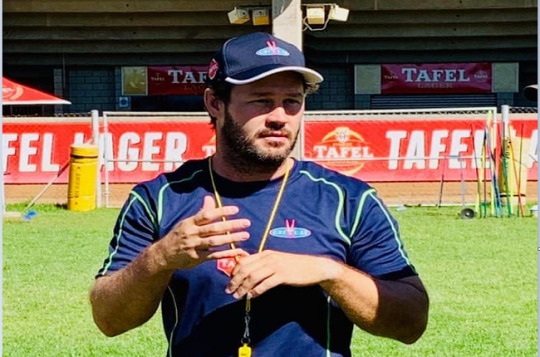
Scott Mathie gave up a relatively comfortable gig at Durban High School to pursue a professional coaching career in Kimberley with Griquas, a journey that has forced him to adapt pronouncedly.
While the 37-year-old, who was promoted from assistant coach late last year, has not had a game in charge yet, his underdog philosophy fits in well with the needs of SA rugby’s perennial overachievers.
Mathie gives great insights into life at a smaller union, particularly the act of having to juggle various roles.
Kimberley’s lowly status in terms of excitement also means regular life in the town is based on embracing community, something that has proven valuable to Mathie’s moulding and his players.
Scott Mathie and his wife, Leigh, were having dinner in Cape Town when she asked him a potentially awkward question.
Specifically, the lawyer turned teacher wanted know where her husband’s coaching career was going.
Mathie – who represented the Bulls, Sharks, Leeds Carnegie, Sale and Kings as a halfback – had been doing well as a history teacher and director of rugby at Durban High School.
The school had clambered its way back into the Top 20 in various school rugby rankings in 2017 and 2018, prompting the Sharks to employ its former player as head coach for their age-group teams.
“But I told her that I’d really like to coach professionally,” Mathie told Sport24.
“The problem is that’s it’s so bloody hard to get in somewhere. I told her the reality is that you need to know someone who can vouch for you or give you an opportunity. The time frame was uncertain too. You had to prime yourself for only, and this is a big maybe, getting a call in two to four years.”
Content that their future lay in Durban, Leigh asked him where he would be able to commence a coaching career at senior level.
“Somewhere in Gauteng.”
Nelspruit and Kimberley were a few potential answers.
“If you go to Kimberley, you’re going alone,” was Leigh’s emphatic retort to the possibility of moving to the Northern Cape.
Three days later, highly rated Sharks assistant coach Brent Janse van Rensburg – appointed Griquas’ head coach for 2019 – rang Mathie up to ask him to become his right-hand man.
“My wife really loves me.”
The Mathies were going to Kimberley.
Janse van Rensburg and Mathie, who crossed paths in Port Elizabeth, were wildly successful as a duo last year, especially when considering the inherent constraints when it comes to being a middle-tier union.
The Peacock Blues won the SuperSport Rugby Challenge and reached the semifinals of the Currie Cup.
But Janse van Rensburg’s increasing prominence – in 2018 he guided the Pumas to the SuperSport Rugby Challenge title – saw him take up a position at Eduard Coetzee and Sean Everitt’s revolution at the Sharks.
That left Mathie in charge for 2020.
Covid-19 means that he has yet to experience the thrill of a first game in charge – the running joke at Tafel Lager Park is that he is still unbeaten after eight months – but there is little doubt at the union it has the right man for the job.
“I’d like to think that I’m a good fit here. My whole philosophy centres on being the underdog. There’s a sincerity about the way you do things then,” said Mathie.
“Griquas is a team that always punches above its weight. It means that everyone involved has something to prove. And when that’s the case, you get more out of everyone.”
That might come across as a wholesome, proverbial back-to-basics outlook, a perception reinforced by the praise Griquas received last year for how well-drilled they looked on the field.
In practice, life at a smaller union is far more complicated than that.
Armed with a salary cap of just R16 million (compared to the R60 million that the “Top Five” are allowed) and limited exposure except in an already waning Currie Cup, coaching actually tends to take a backseat.
Those types of finances mean the union can only employ one assistant coach in Albert van den Berg, a high performance head in Jacques du Toit and performance analyst Benedict Chanakira.
There are two additional members of the medical team.
“I’m really not kidding when I tell you that on-field coaching only takes up about 20% of my time,” said Mathie.
“About 80% is spent on contracting and analysis. Being a head coach at a team like this really is a all-encompassing role. You have to wear many hats. I’m not saying coaching isn’t important, but we don’t have the luxury of being able to solely focus on it.
“We need to analyse recruits because we need to investigate backgrounds. In our financial position, you need to make sure most of the players you get are going to fit in. It’s a helluva thing. You learn about your customers, who are sensitive and need guidance, who are the guys that thrive on honest opinion.
“There are so many variables. You even try and determine which players you can cultivate some form of loyalty from by loaning them to places like Russia and the US, to go and enrich their understanding of the game. It’s also a way to put less pressure on the finances for a few months or give another player an opportunity.”
However, even if a coaching “quota” of 20% sounds low, Griquas has the benefit of operating in an environment where, for the majority of your days, you need to live and breathe rugby.
“Look, I miss the beach. I’m a keen surfer, so it breaks my soul a bit at times to be in the Karoo,” said Mathie.
“Kimberley doesn’t have many attractions. If you’re going to tell yourself to do things, you’re going to have to make it happen yourself.”
Thankfully, Mathie, who completed a BA in English and History at Leeds Metropolitan, can appreciate a town steeped in nostalgia with historical sites such as the Big Hole, the McGregor Museum, the Lodge and Halfway House.
“I’m a bit of a buff in that regard, so it’s quite cool. But my feelings are a bit mixed. It’s nice to be close to these sites and experience them, but you also get the feeling that for all its historical value, it hasn’t been looked after as well as it should,” he said.
For those less inclined to actively studying the past, the key to adapting is simple but nonetheless onerous: you have to embrace the community.
“Broadly speaking, it’s really all you have when you dig in here,” said Mathie.
“You spend your days in the company of others, getting together and rotating the responsibility of who’s hosting the braai. Some of the guys will also go hunting together in the vicinity.
“It’s a slice of life that takes getting used to. You won’t cope if you come here with a city-orientated mindset. You have to embrace that you’ll spend a lot of time in the company of others. To me it’s been valuable. It’s about appreciating those around you and your community.
“More importantly, I think that’s why the rugby-related things we do here are also successful.”
The post News24.com | From beaches to Big Holes: Scott Mathie’s ‘interesting’ journey to Griquas appeared first on BBC BREAKING NEWS.
from WordPress https://bbcbreakingnews.com/news24-com-from-beaches-to-big-holes-scott-mathies-interesting-journey-to-griquas/
0 notes
Text
Los 21 mejores libros del siglo XXI
Un jurado de 84 expertos ha escogido para Babelia los títulos más relevantes de las dos primeras décadas del milenio
JAVIER RODRÍGUEZ MARCOS (Elpais.es)
"Hacer listas", escribe Alberto Manguel en su Diario de lecturas, “da lugar a cierta arbitrariedad mágica, como si la simple asociación pudiera crear sentido”. Pues bien, ¿qué sentido se puede encontrar en una lista que trata de hacer balance de las dos primeras décadas del siglo XXI? Empecemos por el principio. El martes 11 de septiembre de 2001, dos aviones de pasajeros secuestrados por terroristas suicidas derribaron las Torres Gemelas de Nueva York, mataron a casi 3.000 personas y cambiaron el mundo para siempre. De paso, mandaron al trastero de las hipótesis la teoría hegeliana del fin de la historia reciclada por Francis Fukuyama tras la caída del muro de Berlín y zanjaron la discusión sobre si el siglo XXI empezaba en el año 2000 o en 2001. La guerra de las galaxias se quedó en choque de civilizaciones. Los ordenadores pasaron la prueba del efecto 2000, pero sus usuarios —la nueva gran palabra— entraron en la era del miedo, la inseguridad, la precariedad, la intimidad (pública) y la realidad (virtual).
El futuro había llegado tan pronto en forma de metralla que los cines se llenaron de remakes; las librerías, de cánones, recuentos y resúmenes y listas de lo muy muy y lo más más (que había que ver, leer y escuchar… antes de morir). También de relatos con un fondo de historia universal y libros de no ficción o de autoficción que dan tanto valor a la trama como a su making-of. Incapaz de imitar a una realidad presente que parecía de novela, la literatura se volcó en el pasado, en la memoria (histórica y a secas), en las investigaciones periodísticas, en la primera persona y en la propia literatura, que se volvió metatodo.
De ahí el triunfo absoluto de 2666, un libro total compuesto de cinco partes y publicado en otoño de 2004, al año siguiente de la muerte de su autor. Desde Borges —retratado minuciosamente por Adolfo Bioy Casares en un diario ya ineludible—, ningún escritor ha influido tanto como Roberto Bolaño en las nuevas generaciones. Que sus libros empezasen a publicarse en Anagrama y actualmente lo hagan en Alfaguara —las dos editoriales más presentes en la lista de Babelia— es otro síntoma del peso de algunos sellos en la creación del gusto contemporáneo.

El escritor chileno Roberto Bolaño, en 1997. MANOLO S. URBANO
Acaso por una mera cuestión generacional, la literatura canónica de las dos primeras décadas del siglo XXI se ha ocupado de hurgar en las heridas del XX. Las guerras mundiales, la guerra civil española, la posguerra, la descolonización, las migraciones, el apartheid, las dictaduras latinoamericanas, la caída del imperio soviético, los feminicidios en Ciudad Juárez o las turbulencias en Oriente Próximo pueden rastrearse en la obra del propio Bolaño, Ian McEwan, W. G. Sebald, Javier Marías, Javier Cercas, Tony Judt, Mario Vargas Llosa, J. M. Coetzee, Zadie Smith, Svetlana Aleksiévich, Emmanuel Carrère, Marjane Satrapi o Edmund de Waal.
Pero si esos autores empiezan a ser canónicos no es solo por los temas que abordan, sino por el modo en que lo hacen: mezclando realidad y ficción, narración y reflexión, dinamitando los géneros tradicionales o dejando que su intimidad sin filtros discuta con la historia universal. Ese yo con voluntad de nosotros es el que ha producido además títulos como los de Joan Didion, Lucia Berlin, Anne Carson y Raúl Zurita —que tituló su obra magna con su propio apellido—, pero sobre todo los seis volúmenes de Karl Ove Knausgård.
También la gran historia y la intimidad cruda están presentes en títulos del siglo XXI tan exitosos como El Código Da Vinci, El niño con el pijama de rayas o Cincuenta sombras de Grey. ¿Por qué no están en esta lista? Tal vez porque no cuadran con la definición que el crítico Northrop Frye acuñó para la “gran literatura”: aquella que es “dueña de una visión siempre más vasta que la de sus mejores lectores”. El poeta Wystan Hugh Auden lo matizó así: “Hay libros que han sido injustamente olvidados; ninguno es injustamente recordado”.
La crisis económica de 2008 sumó la indignación a la inseguridad y dio la razón a una novela premonitoria publicada en España un año antes: Crematorio, de Rafael Chirbes. De paso, empoderó —el verbo del siglo— a un género y a una generación. El feminismo y el ecologismo son por ahora la respuesta más contundente a una deriva insostenible que va camino de convertir en realismo puro una novela de, digamos, ciencia-ficción como La carretera, de Cormac McCarthy. Protagonizada por dos hombres solos —un padre y un hijo— que vagan por un planeta devastado, la distopía del autor estadounidense incluye en sus páginas algo que se parece a una definición de la literatura de hoy: “Dios no existe y nosotros somos sus profetas”.

1. '2666', Roberto Bolaño
"2666 es lo mejor de una producción literaria prematuramente interrumpida", escribió Ana María Moix en Babelia en 2004, "Amalfitano, uno de los protagonistas de la segunda de las cinco partes o novelas que componen 2666, obra póstuma de Roberto Bolaño (1953-2003), rememora desde México una conversación sostenida, hacía años en Barcelona, con un joven farmacéutico que pasaba sus noches de guardia leyendo. Al joven le gustaba leer novelas breves como La metamorfosis, de Kafka; Bartleby, el escribiente, de Melville; Un corazón simple, de Flaubert, o Un cuento de Navidad, de Dickens, títulos que escogía en lugar de El proceso, Moby Dick, Bouvard y Pécuchet o El Club Pickwick, novelas largas de los citados autores. 'Qué triste paradoja, pensó Amalfitano', escribe Bolaño. 'Ya ni los farmacéuticos ilustrados se atreven con las grandes obras, imperfectas, torrenciales, las que abren caminos en lo desconocido. Escogen los ejercicios perfectos de los grandes maestros (...)'. Y, de hecho, eso es 2666: una gran obra torrencial, que abre caminos en lo desconocido". Moix apunta que las cinco partes de esta gran obra pueden leerse por separado, pero se perdería la grandeza que alcanzan juntas.
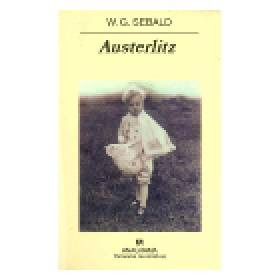
2. 'Austerlitz', W. G. Sebald
La novela del alemán W. G. Sebald (1944-2001) narra la odisea vital de un hombre sin historia llamado Jacques Austerlitz en busca de ese tejido perdido en el tiempo que son sus padres. El protagonista camina sobre los restos de una devastación insoportable después de dos guerras. “Austerlitz es una formidable representación del destino del hombre moderno llevado a un extremo: el del desarraigo extremo; también lo es de la capacidad de supervivencia del ser humano”, escribió en estas páginas José María Guelbenzu en 2002. Traducción de Miguel Sáenz.
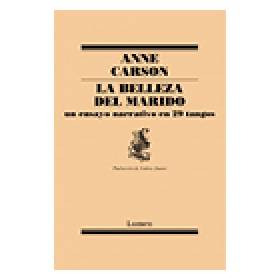
3. 'La belleza del marido', Anne Carson
Anne Carson (1950) abordó en La belleza del marido el conflicto desencadenado por su separación. “Hay en este poemario”, escribió el crítico Ángel Rupérez en 2003, “una tensión entre la idealización inicial del marido (…) y el derrumbe de ese ídolo que consigue sobrepasar con creces el anecdotario más estrictamente autobiográfico y confesional, constantemente convertido en materia poética contaminada por un continuo y soterrado —no explícito— aliento lírico hecho de elegía comedida y de creencia incondicional en la belleza”. Traducción de Ana Becciu.
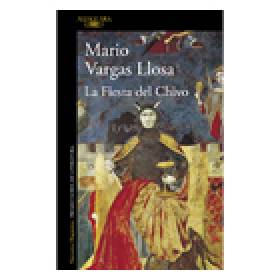
4. 'La Fiesta del Chivo', Mario Vargas Llosa
La Fiesta del Chivo es un relato sobre el dictador dominicano Rafael Leónidas Trujillo Molina y, a la vez, un impresionante fresco de la corrupción destructiva de las dictaduras. En su crítica de 2000, el argentino Tomás Eloy Martínez definió la novela del premio Nobel Mario Vargas Llosa (Arequipa, 1936) como “un retrato implacable del poder absoluto en una novela que se lee sin respiro de principio a fin”.
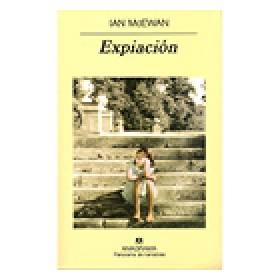
5. 'Expiación', Ian McEwan
Con minuciosidad y un talento infinito, el británico Ian McEwan (Aldershot, 1948) ha ido construyendo una obra tan variada como imprevisible. Expiación es una de sus novelas más célebres, mucho antes de que fuese llevada al cine. En su crítica, Andrés Ibáñez calificó en 2002 la novela como “un relato de una ambición y un alcance nada frecuentes”. “Es, ante todo”, proseguía, “un triunfo de la imaginación creadora, una obra que justifica en sí misma la existencia del arte de la novela”. Traducción de Jaime Zulaika.
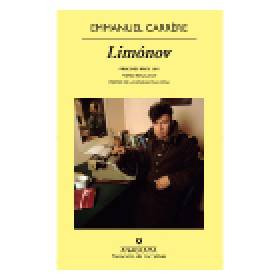
6. 'Limónov', Emmanuel Carrère
Emmanuel Carrère (París, 1957) ha construido un género propio en el que mezcla la autobiografía con el retrato de personajes insólitos. Así definió el autor a su protagonista en 2013: “Ha sido granuja en Ucrania, ídolo del underground soviético, mendigo y después mayordomo de un millonario en Manhattan; escritor en París, soldado en los Balcanes, y, ahora, en el inmenso burdel del poscomunismo en Rusia, viejo jefe carismático de un partido de jóvenes desesperados. Él se ve como un héroe, pero también se le puede considerar un cabrón: yo no me atrevo a juzgarlo”. Traducción de Jaime Zulaika.
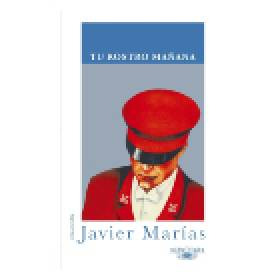
7. 'Tu rostro mañana', Javier Marías
Javier Marías cerró su trilogía Tu rostro mañana en 2007 con Veneno y sombra y adiós, en la que reflexiona sobre el egoísmo, la verdad y la culpa. José-Carlos Mainer calificó la obra de ejemplo del género de la autoficción: “Marías ha logrado la construcción más sostenida, compleja e importante que tal voluntad (de estilo y de género) ha producido en las nuevas letras españolas”. Mainer describe la obsesión por “la naturaleza de la verdad” y cree que “el punto de partida de la existencia es el egoísmo”.
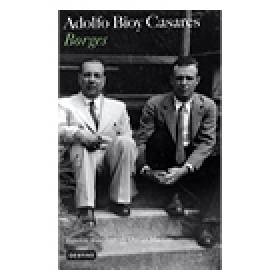
8. 'Borges', Adolfo Bioy Casares
“De las 20.000 páginas de cuadernos íntimos que Bioy (1914-1999) escribió a lo largo de su vida, su relación con Borges ocupa 1.700”, explicó en una información de 2006 Javier Rodríguez Marcos. Son las que preparó para este volumen antes de morir: “Aunque el libro se extiende entre 1931 y 1989, Bioy resume los 15 primeros años en una decena de páginas. Eso sí, brillantes. Los diarios borgianos de Bioy están llenos de literatura”. Borges dijo que su relación era una profunda amistad “sin intimidad” cuya piedra angular eran los libros.
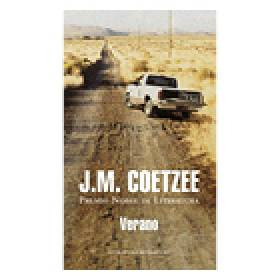
9. 'Verano', J. M. Coetzee
Verano, la tercera entrega de las memorias del sudafricano J. M. Coetzee (1940), “revela una audacia literaria que no por consecuente con la última parte de su obra deja de ser un reto original”, escribió José María Guelbenzu en 2010. En este libro, cinco entrevistados crean con su testimonio un Coetzee personal e íntimo, en un documento que manifiesta la viveza de espíritu del escritor y su apuesta irreductible por la verdad literaria. Traducción de Jordi Fibla.
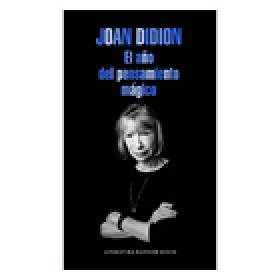
10. 'El año del pensamiento mágico', Joan Didion
“La obra de no ficción de Joan Didion (1934) ejemplifica bien el género conocido como ensayo personal, una forma de escritura cuyo objetivo es someter a examen circunstancias de orden histórico o sociológico desde una perspectiva radicalmente subjetiva”, escribió en 2005 en estas páginas Eduardo Lago. Este libro de duelo es, en palabras del escritor, “el más personal por lo íntimo y doloroso del tema”: la muerte de su marido. Traducción de Javier Calvo.
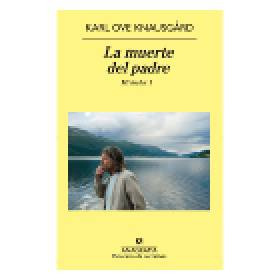
11. 'Mi lucha', Karl Ove Knausgård
El noruego Karl Ove Knausgård (1968) narra su vida en seis tomos bajo el título de Mi lucha,como la autobiografía de Hitler. “Un vertedero documentario que necesita existir para que surja, de vez en cuando, un prodigio que, por sí solo, parecería puramente retórico pero que, nacido de la abrumadora acumulación de detalles, se convierte en una epifanía”, opinó Alberto Manguel en 2014. Traducción de Kirsti Baggethun y Asunción Lorenzo.

12. 'La carretera', Cormac McCarthy
Un padre y su hijo, supervivientes de una hecatombe nuclear, caminan hacia un sur que, solo quizá, sea su salvación. “Unidos por el amor y el miedo, son la expresión de una soledad intolerable”, escribió J. M. Guelbenzu en su crítica de esta novela de Cormac McCarthy (1933). Traducción de Luis Murillo Fort.

13. 'Crematorio', Rafael Chirbes
Rafael Chirbes (1949-2015) narró en esta novela la corrupción urbanística en España. “Con una escritura de precisión clínica en la que a veces recala un medido lirismo, el escritor no cede al olvido de la grande y pequeña historia de nuestro país. Como si Galdós vigilara”, escribió sobre el autor y su obra J. E. Ayala-Dip.
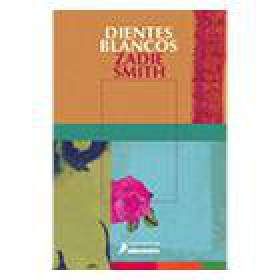
14. 'Dientes blancos', Zadie Smith
“El rasgo más característico de la escritura de Zadie Smith (1975)es su propensión a la sátira. No obstante, Dientes blancos no es una novela divertida”, escribió Francisco Solano en 2001. “Retrata el espacio multirracial habitado por hijos de inmigrantes, cuya asimilación a la metrópoli, junto con la confrontación con los padres, les aboca a ser víctimas de una mezcolanza ideológica y religiosa que produce claros efectos de atolondramiento”. Traducción de Ana M. de la Fuente.

15. 'Manual para mujeres de la limpieza', Lucia Berlin
La estadounidense Lucia Berlin (1936-2004) empezó a publicar (no a escribir) muy tarde y solo a finales del pasado siglo se la comenzó a reconocer como una narradora excepcional. Manual para mujeres de la limpieza es una antología de relatos basados en la vida itinerante de la autora, alcohólica, que trabajó en toda clase de oficios para mantener a sus hijos. “Todo cuanto relata tiene olor a verdad”, aseguró José María Guelbenzu en 2016. Traducción de Eugenia Vázquez Nacarino.
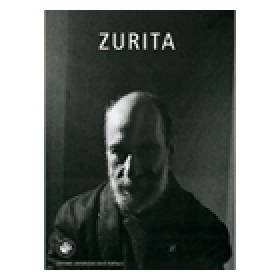
16. 'Zurita', Raúl Zurita
“La primera impresión que produce Raúl Zurita (Santiago, 1950) es la de un poeta perdido en el mundo del misterio y la espiritualidad”, escribió el cronista Patricio Fernández en 2012. “No lee, canta, se lamenta, y reza”. Y este poeta publicó aquel año su particular autobiografía, un poemario de 800 páginas en el que se expone más crudamente que nunca.
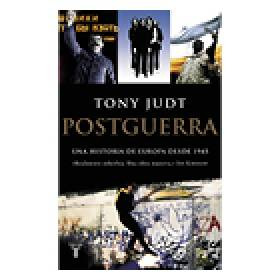
17. 'Postguerra', Tony Judt
El historiador británico (1948-2010) logró con este libro una hazaña, mezclando las lavadoras, los Beatles y Margaret Thatcher. Esto es, la vida cotidiana, la cultura y la política. “La nueva Europa constituye un éxito notable vitalmente vinculado a un terrible pasado”, escribió Santos Juliá en su reseña. “Para que los europeos conserven siempre ese vínculo vital hay que enseñárselo de nuevo a cada generación”. Traducción de Jesús Cuéllar y Gloria E. Gordo del Rey.
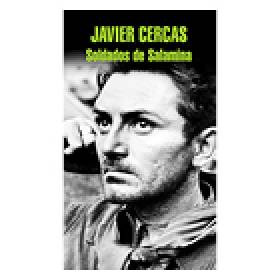
18. 'Soldados de Salamina', Javier Cercas
J. Ernesto Ayala-Dip habló en su crítica de Soldados de Salamina en 2001 de la mezcla entre “el relato real” que se plantea en el libro de Cercas y la “obra de ficción” que realmente es. La historia del fallido fusilamiento de Rafael Sánchez Mazas, escritor y fundador de la Falange, se desarrolla con “esa prosa que se desliza con la naturalidad que da la madurez”, añadió Ayala-Dip sobre esta novela.
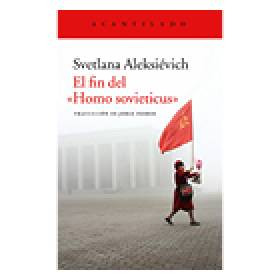
19. 'El fin del Homo sovieticus', Svetlana Aleksiévich
Cuando Svetlana Aleksiévich (Ucrania, 1948) recibió el Premio Nobel de Literatura, muchos lectores descubrieron la fuerza de una obra, a medio camino entre el periodismo y la historia. El fin del ‘Homo sovieticus’ ofrece las voces de los que vivieron el fin del comunismo. “Su obra es también una revancha del periodismo”, escribió Lluís Bassets sobre su obra, “que busca las fuentes más modestas y las experiencias más sencillas para explicar lo que fue silenciado durante las siete décadas soviéticas”. Traducción de Jorge Ferrer.

20. 'Persépolis', Marjane Satrapi
En Persépolis, el único cómic en la lista, la autora iraní cuenta la revolución islámica de 1980 vista por una niña, la que Marjane Satrapi era entonces, con 10 años, cuando tuvo que ponerse pañuelo por primera vez para ir a la escuela. “Tenía un deber para con mi país”, le dijo en 2002 a Jaume Vidal en una entrevista. Un cómic en blanco y negro porque, según Satrapi, “el rojo de la sangre podría ser muy dramático”. Traducción de Albert Agut.
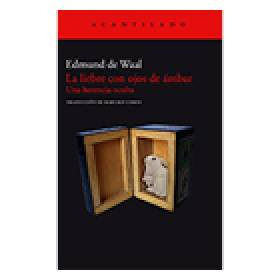
21. 'La liebre con ojos de ámbar', Edmund de Waal
A través de la historia de 264 miniaturas japonesas llamadas netsukes —entre ellas, la liebre que da título al libro—, Edmund de Waal (Nottingham, 1964) construye la historia de su familia, aunque va mucho más allá en un retrato de la historia reciente de Europa y de sus profundas heridas y ausencias. Traducción de Marcelo Cohen.
Del 22 al 50
22. La grande, Juan José Saer
23. Nunca me abandones, Kazuo Ishiguro
24. Anatomía de un instante, Javier Cercas
25. Demasiada felicidad, Alice Munro
26. La tabla rasa, Steven Pinker
27. Los años, Annie Ernaux
28. Temporada de huracanes, Fernanda Melchor
29. Sapiens, Yuval Noah Harari
30. Kafka en la orilla, Haruki Murakami
31. El nervio óptico, María Gainza
32. Los diarios de Emilio Renzi, Ricardo Piglia
33. La novela luminosa, Mario Levrero
34. En presencia de la ausencia, Mahmud Darwish
35. Incendios, Wajdi Mouawad
36. Pensar rápido, pensar despacio, Daniel Kahneman
37. Las correcciones, Jonathan Franzen
38. El adversario, Emmanuel Carrère
39. La mancha humana, Philip Roth
40. Canadá, Richard Ford
41. Elizabeth Costello, J. M. Coetzee
42. Terror y utopía, Karl Schlögel
43. Lectura fácil, Cristina Morales
44. Las poetas visitan a Andrea del Sarto, Juana Bignozzi
45. Ordesa, Manuel Vilas
46. Distancia de rescate, Samanta Schweblin
47. La noche de los tiempos, Antonio Muñoz Molina
48. Teoría King Kong, Virginie Despentes
49. El mundo deslumbrante, Siri Husvedt
50. Los testamentos, Margaret Atwood
Del 51 al 100 (por orden alfabético del apellido del escritor)
Americanah, Chimamanda Ngozi Adichie
Diccionario de autores latinoamericanos, César Aira
Experiencia, Martin Amis
Patria, Fernando Aramburu
Un país mundano, John Ashbery
Fun Home, Alison Bechdel
Genios: un mosaico de cien mentes creativas y ejemplares, Harold Bloom
Vida precaria, Judith Butler
El día del Watusi, Francisco Casavella
Las ensoñaciones de la mujer salvaje, Hélène Cixous
Hombre lento, J. M. Coetzee
A contraluz, Rachel Cusk
La maravillosa vida breve de Óscar Wao, Junot Díaz
Jamás el fuego nunca, Diamela Eltit
El olvido que seremos, Héctor Abad Faciolince
Un ángulo me basta, Juan Antonio González Iglesias
El giro, Stephen Greenblatt
El tejido del cosmos, Brian Greene
Homo Deus. Breve historia del mañana, Yuval Noah Harari
Trabajos del reino, Yuri Herrera
Sumisión, Michel Houellebecq
La posibilidad de una isla, Michel Houellebecq
La doctrina del shock, Naomi Klein
La casa de la fuerza, Angélica Liddell
Berta Isla, Javier Marías
Asterios Polyp, David Mazzucchelli
Necropolítica, Achille Mbembe
C, Tom McCarthy
Aquí, Richard McGuire
Todo lo que tengo lo llevo conmigo, Herta Müller
Escapada, Alice Munro
Suite francesa, Irène Némirovsky
Infiel. Historias de transgresión, Joyce Carol Oates
El salto del ciervo, Sharon Olds
El capital en el siglo XXI, Thomas Piketty
Un apartamento en Urano, Paul B. Preciado
Diccionario sánscrito-español. Mitología, filosofía y yoga, Òscar Pujol
Retaguardia roja, Fernando del Rey
La conjura contra América, Philip Roth
Harry Potter y el misterio del príncipe, J. K. Rowling
La última noche, James Salter
Clavícula, Marta Sanz
El artesano, Richard Sennett
La estupidez, Rafael Spregelburd
La poesía del pensamiento, George Steiner
La gran brecha. Qué hacer con las sociedades desiguales, Joseph Stiglitz
Los errantes, Olga Tokarczuk
Nada se opone a la noche, Delphine de Vigan
Hablemos de langostas, David Foster Wallace
Fabricando historias, Chris Ware
0 notes
Text
South Africa score nine tries in Rugby World Cup rout of Namibia
New Post has been published on https://thebiafrastar.com/south-africa-score-nine-tries-in-rugby-world-cup-rout-of-namibia/
South Africa score nine tries in Rugby World Cup rout of Namibia
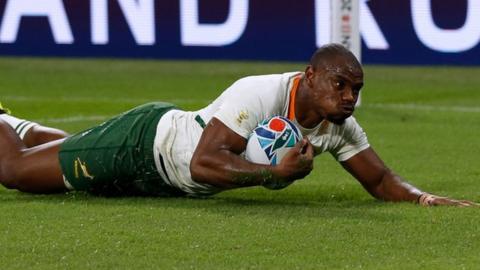

Makazole Mapimpi scored his ninth and 10th international try in 10 Tests
2019 Rugby World Cup Pool B: South Africa v Namibia South Africa(31) 57 Tries:Mbonambi (2), Louw, Mapimpi (2), Am, Gelant, Kolisi, BritsCons:E Jantjies (6) Namibia(3) 3 Pen:Loubser
South Africa scored nine tries in a predictably one-sided drubbing of neighbours Namibia in their second Rugby World Cup outing.
Hooker Mbongeni Mbonambi ploughed over for two scores as the Springboks built a 28-point lead by the interval.
There was no let-up after the break with Warrick Gelant going over before scores for Makazole Mapimpi, Siya Kolisi and Schalk Brits.
Namibia’s only points came via a solitary penalty from Cliven Loubser.
South Africa v Namibia – how the match unfolded
Things will not get any easier for the lowest-ranked side in the Rugby World Cup – in their next encounter, in eight days’ time, they meet world number ones and two-time defending champions New Zealand in Tokyo.
South Africa’s next match is a meeting with Italy in Shizuoka on Friday.
Springboks run rampant
After the bruising 23-13 defeat to the All Blacks in their opening match of the tournament, South Africa coach Rassie Erasmus made 13 changes to his starting XV with only Lukhanyo Am and Makazole Mapimpi retaining their places.
It allowed Erasmus to take a look a some options that he may need later in his campaign, such as back-row fetchers Kwagga Smith and Francois Louw, and others that are unlikely to be required, like 38-year-old hooker Schalk Brits reprising a number eight role he last played a decade ago.
The Springboks duly used the match to polish up their drills and skills for tougher tests to come, with a couple of driven line-outs proving irresistible in the first half and full-back Warrick Gelant rounding off a superb counter-attack score early in the second half.
Defence coach Jacques Nienaber had promised before the match that there was “no points limit” set for South Africa, but Namibia’s stubborn defence was unbroken in the final 17 minutes as the contest lost shape and rhythm.
Namibia close the gap, slowly
The defeat may have been heavy, but Namibia, whose squad is made up of 70% amateurs, are getting closer to their powerhouse neighbours.
In 2007 and 2011, their only previous meetings with South Africa, they lost by 92 and 87 points respectively.
The 54-point margin might have been slimmer had replacement Johannes Coetzee not been sin-binned for a blatant shoulder charge on Brits.
Their improvement could also be in part attributed to their opponents, Namibia having trained with South African provincial side Sharks and been invited into the second tier of South Africa’s domestic Currie Cup competition.
Read More
0 notes
Photo

Big toys roll into Morawa The monumental task of shifting thousands of tonnes of agricultural machinery from several branches to a more central location, 370km north of Perth, was never one to be taken lightly, but Jacques Coetzee and his team did not shy away from the challenge.
0 notes